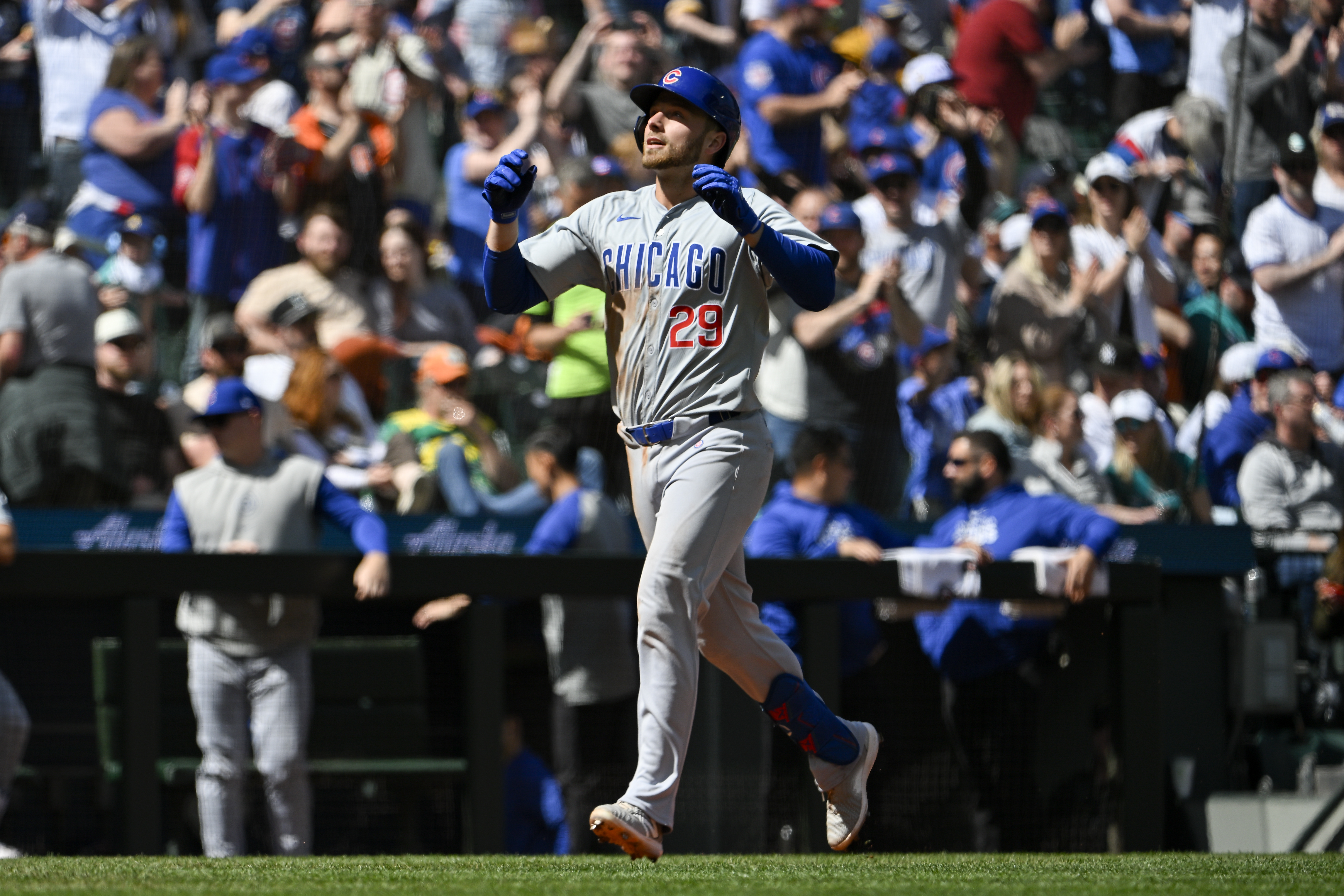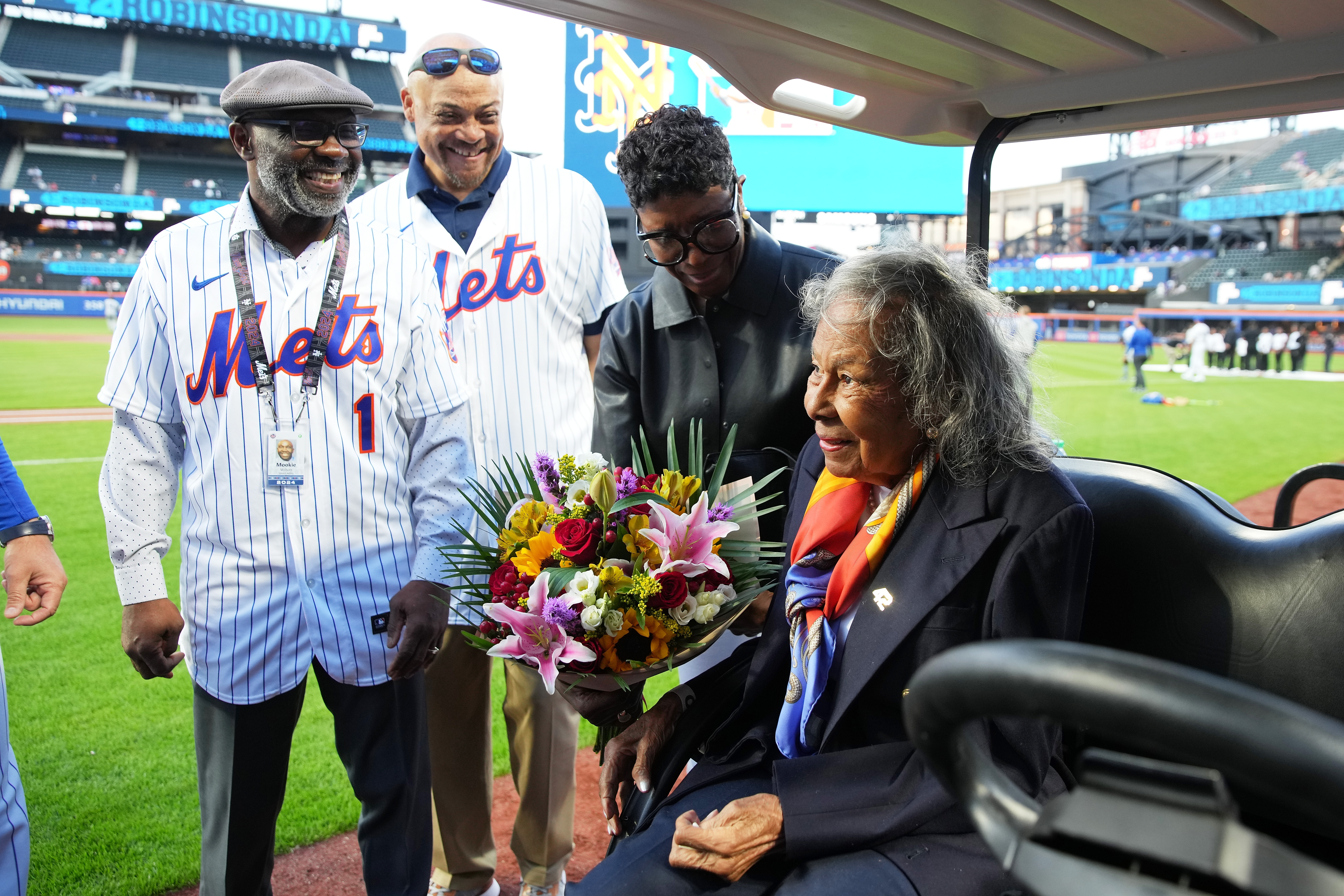To beat first baseman Leon Durham in arbitration in 1985, the Cubs included in their presentation his infamous Game 5 error in the playoffs, insinuating he cost them the pennant and provoking an angry response from Durham’s agent for the underhanded tactic.
“I thought it was the worst thing they could have done,” Durham said after losing the case.
A few years later, Milwaukee third baseman Jim Gantner listened to the Brewers’ rip him as he sat silently fuming during the hearing, then afterward confronted Brewers general manager Harry Dalton: “If you feel that way about me, why don’t you trade me?”
Fast-forward to 2022, when on June 9 two-time All-Star catcher Willson Contreras plans to wear a suit and tie to his hearing and listen quietly to whatever the Cubs might say to disparage his abilities as a baseball player and malign his value — or worse — to save perhaps $600,000 on an already middling 2022 payroll.
Contreras — whose value as a two-way player was on display in a big way Wednesday in Pittsburgh — thinks he knows what to expect from a process he’s never been through.
“There’s nothing that’s going to surprise me, believe me,” he said during a conversation with NBC Sports Chicago of the negative case the Cubs will make against him. “I’ve been going through a lot of [criticism] since I was in the minor leagues, and everything they have to say I’ve already heard it. It doesn’t bother me.”
Maybe he’s right. And that will almost certainly be a key to his season — if not his value as a free agent at the end of the year.
MLB
Because even if the Cubs don’t get especially ugly with Contreras — as they did a generation ago with another two-time All-Star that helped them reach the postseason — arbitration hearings are never pretty.
They are often relationship-altering processes.
And Contreras knows as well as anyone else what it suggests that the Cubs are willing to take him to a hearing over a relatively small gap in filing figures ($10.25 million and $9 million) that has not been discussed since numbers were exchanged a few weeks ago and negotiations on a one-year contract stopped.
“File and trial” is what people in baseball call it — the unwillingness to negotiate once the deadline for exchanging numbers passes. It’s a tactic used more often, by more teams than even a decade ago and one more hardball tactic by teams to hold down salaries — sometimes unwillingness to compromise on $100,000 or less.
The Cubs say they won’t make an exception, even in the case of one of the top catchers in game.
“That’s not our policy,” team president Jed Hoyer said on Opening Day. “We went past that deadline.”
Etched in stone, apparently.
Just like Contreras’ future — or lack of one — with the Cubs.
“It might be less of a chance for me to return,” Contreras said, “if I reach free agency. But it doesn’t close the window [completely].”
That part about free agency looks as much like a foregone conclusion as Contreras’ departure sometime between his hearing in June and the Aug. 2 trade deadline — much like his World Series teammates Anthony Rizzo, Javy Báez and Kris Bryant a year ago.
“This is a business,” Contreras said. “This is not a game of baseball anymore. This is about business.
“More than ever.”
And it makes words like “team culture” and “family” from front offices and ownership ring hollow, especially from big-revenue teams that squeeze payrolls and squeeze All-Star level, brand-name players on their rosters even in arbitration.
The reality is Major League Baseball has increasingly put the squeeze on teams to hold hard lines on salaries, and the guidelines its Labor Relations Department (LRD) analysts spit out annually for arbitration-player values has been treated increasingly like MLB directives in practice.
But executives have gladly, it seems, played their part: A report by The Athletic in 2019 (and confirmed by NBC Sports Chicago) revealed the annual awarding of a cheap, replica “championship belt” to the team that did the best job keeping salaries down in arbitration.
It’s a silly ritual that demonstrates not only a league-wide pressure on teams that might otherwise shrug off paying a little more to keep harmony with those presumably productive players, but also shows a disrespect — if not contempt — for players the industry too often seems to forget are the actual game and not labor costs on a balance sheet.
Back to the Cubs and Contreras, Hoyer said during that media conversation last week that “We’ve got a good relationship with Willson.”
There’s nothing to suggest that’s not true. But it’s less than meaningless in this context.
Unless the organization does an about-face on its plans, Hoyer’s staff will arm its arbitration lawyer with as much negative data to use against Contreras between now and June 9 rather than engage in good-faith talks befitting a “good relationship” to split the difference.
Then he’ll play the other side of the debate and leverage Contreras as a catcher with a rare and elite skill set in trade talks.
Hey, it’s just business.
RELATED: Contreras' 'dream' of free agency would be Cubs nightmare
“The only thing that surprised me is that they’re willing to go in my last year,” Contreras said. “That’s fine.”
Contreras, a fiery competitor on the field, has leaned on teammate Ian Happ — who beat the Cubs in arbitration last year — for advice.
“I’m like, ‘Am I able to say something?’ He said, ‘No, you just sit and hear,’ “ Contreras said. “I was like, ‘OK.’ “
Happ also was able to offer some insight into the Cubs’ methods.
“I can tell you in mine, the Cubs did not go over the line,” Happ said. “They stayed on topic and worked through the points instead of doing something that was completely and totally out of line, which other teams have done.”
Contreras seems confident he’ll not only know what to expect and be fine with with whatever the team says about him but that it won’t be a distraction, either, leading up to the rare in-season hearing schedule created by MLB’s lockout.
“Believe me, I’m really calmed down. I’m really focused on my season,” he said. “Whatever’s going to happen midseason is going to happen.”
He backed that up with a game Wednesday in Pittsburgh that underscored his value as a rare slugging catcher — hitting a homer and a double — with one of the game’s strongest arms behind the plate as he quelled a Pirates rally with an inning-ending pickoff of a runner at second in the fourth. He followed that Friday night in Colorado with two more doubles during a three-hit performance and threw out a would-be base stealer.
If he keeps up anything close to that, it definitely won't hurt his opening arguments.
“We’re going to arbitration because we think we really have a good chance to win,” said Contreras, whose .810 OPS since he broke into the league in 2016 ranks behind only Yasmani Grandal among all catchers in the game.
“We have a strong case to go, and that’s why we’re willing to go. And they’re going to argue and say whatever they have to say; it’s nothing new. I’ve already heard it. They’ve already said it in interviews. And I’m OK with that.
“I understand it's a business.”
Whether the Cubs are making the right business decision, whether they appreciate what they’re risking at a marquee position as Hoyer builds his “next great Cubs team,” that’s not going to be decided in an arbitration hearing.
But the very decision to take this to a hearing probably answers the question.


